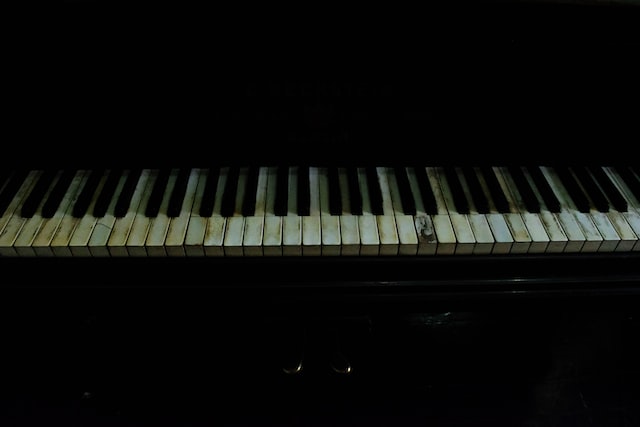/ˈɑːf.tər/
Preposition
Alice met her father for the first time after her school recital. Her hands were so sweaty they slipped on the keys a couple of times and despite the encouragement from the audience, she knew she’d botched it. Her mother was waiting behind the scenes, flanked by a tall, lanky man. Years later, supine on the white leather sofa of a Freudian analyst, Alice described him as willowy (surprisingly so, as she was solid like half-sculpted stone.)The man complimented Alice on her performance, making her blush, and suggested they all go for a sundae at the parlour down the street. Alice’s mum left them alone, pretending she had an important errand to run. Gabriel (Alice will never call him Dad) explained the circumstances of her conception (business trip, boring conference, free oak-aged bourbon). When he finished speaking, Alice dodged his embrace and offered her hand instead. Gabriel’s was cold and bony. Alice thought that she could have easily crushed it, heard the phalanges crack with a thin sound.
Conjunction
What Alice’s mum had failed to mention after they first met was that Gabriel already had a wife and children (two boys, two girls). They were holidaying two villages down the coast. Alice’s father called sometimes at night to listen to Alice play the piano. Alice’s mum would leave the cordless phone on the dining table, propped against a jar of biscuits, and Alice would perform Rondo alla Turca at her father’s request. Her fingers weren’t long enough to reach all the octaves, though, and when her mother eventually ended the call, Alice’s hands hurt from all the stretching and the tension. her wrists froze in panic instead of remaining supple as they should have been.
Adverb
Afterwards, Alice’s father moved in. He parked a teal 7-seater in their driveway as Alice’s mother prepared him a martini (dry, two olives). She wore a new dress and red lipstick. They kissed on the porch while Alice peered inside the boot. Next to three black suitcases lay a tennis racket and a Cabbage Patch doll with a mangled arm.
Adjective
As an afterthought, Alice asked who the doll belonged to and her father said, your sister. He added that she was very sad to lose her daddy and one day Alice would meet her and be very kind, because Alice now had a dad in the house while her sister didn’t.
Opposite: before
Before Alice had a father in the house and half-sisters and brothers whom she owed to despite having never met them, she was content. After, she stopped playing because her fingers never grew enough to reach all the keys. As she bit her nails at night, pulling the cuticles until they bled, she wondered whether she’d ever be good enough at something that four fatherless children a mile away would condone her existence.
Image: Photo by Charles C. Collingwood on Unsplash

